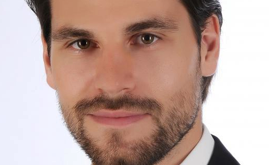1. Who are you?
Connoisseur, engineer, ex-consultant – my name is Mark Fabian Henkel and I am one of the founders of PAYMILL.
2. Which services do you sell and who are your competitors?
PAYMILL is a payment service provider which focuses on small to medium-sized customers. This means we support startups from start-up to scale, but also cater to established SMEs.
Projects business e.g. for Airlines is not in our focus.
We differentiate ourselves from the market in three dimensions (corresponding to the three pain points in payments business) – easy integration of technology, simple on-boarding and real-time support.
3. How did you get your start-up idea and how did you finance your startup?
As founders we have experienced the problem of payment integration ourselves. During visits to the U.S., we learn about solutions that make this much easier there. We realized that there are no such solutions in the European Union. This we offered for the first time with Paymill.
We are funded by three investors from Germany, Scandinavia and the US.
4. What were the biggest challenges in starting?
Persuading saturated banks to help us tackle this market. This is a never-ending story.
5. What areas within FinTech do you personally find most interesting and why?
I think that after the prolonged hype in e-commerce, now the downstream services such as payment, invoicing and other firms will follow.
6. What opportunities do you see for FinTech startups in the DACH region, and how can we help to accelerate it?
Established players are too slow to act. Here lie our opportunities. But there are also risks for DACH companies because companies in other parts of the world already operate in this service-oriented market for some time. They are regulated differently. Therefore, they can conquer the market easily and quickly compared to a local player.
7. What tip would you like to give FinTech entrepreneurs?
Do not stop questioning and do not get stuck into the “we have always done it this way” mindset.

